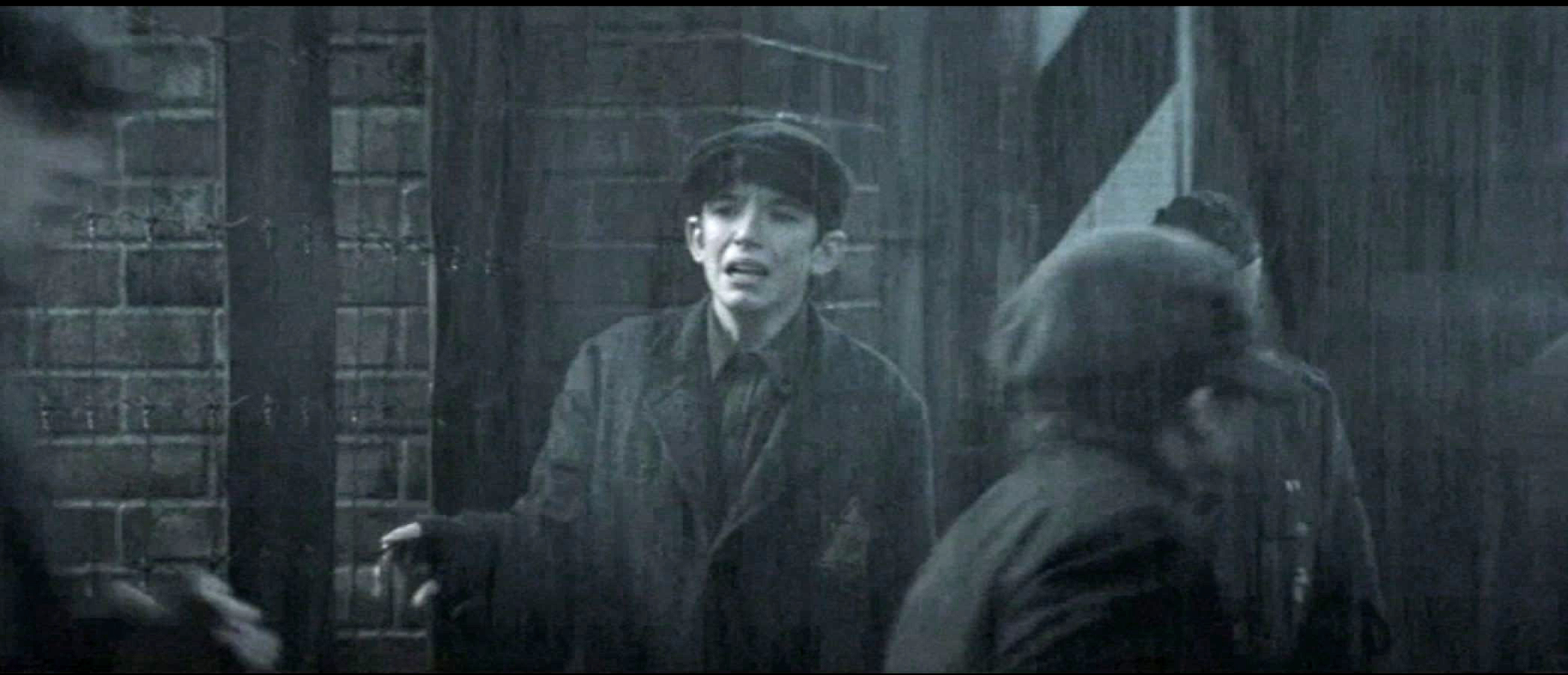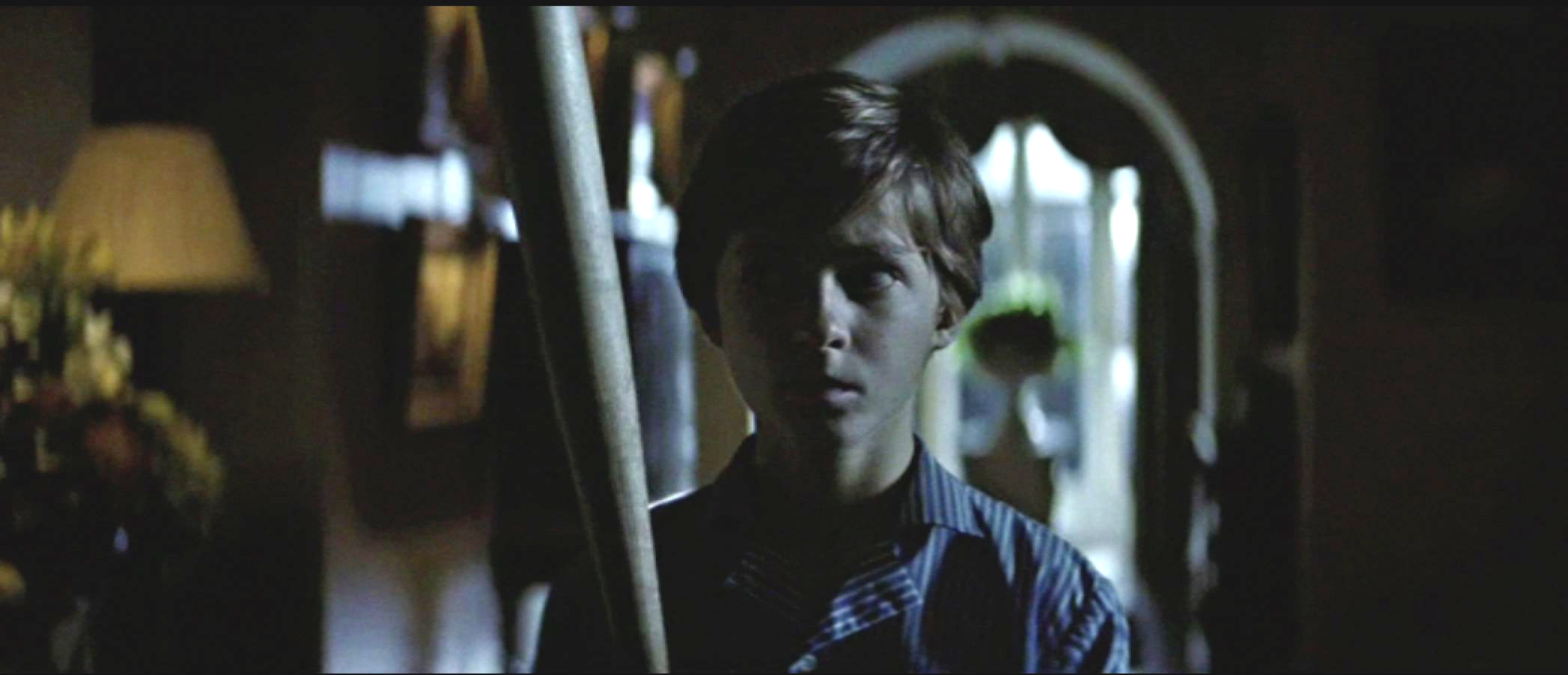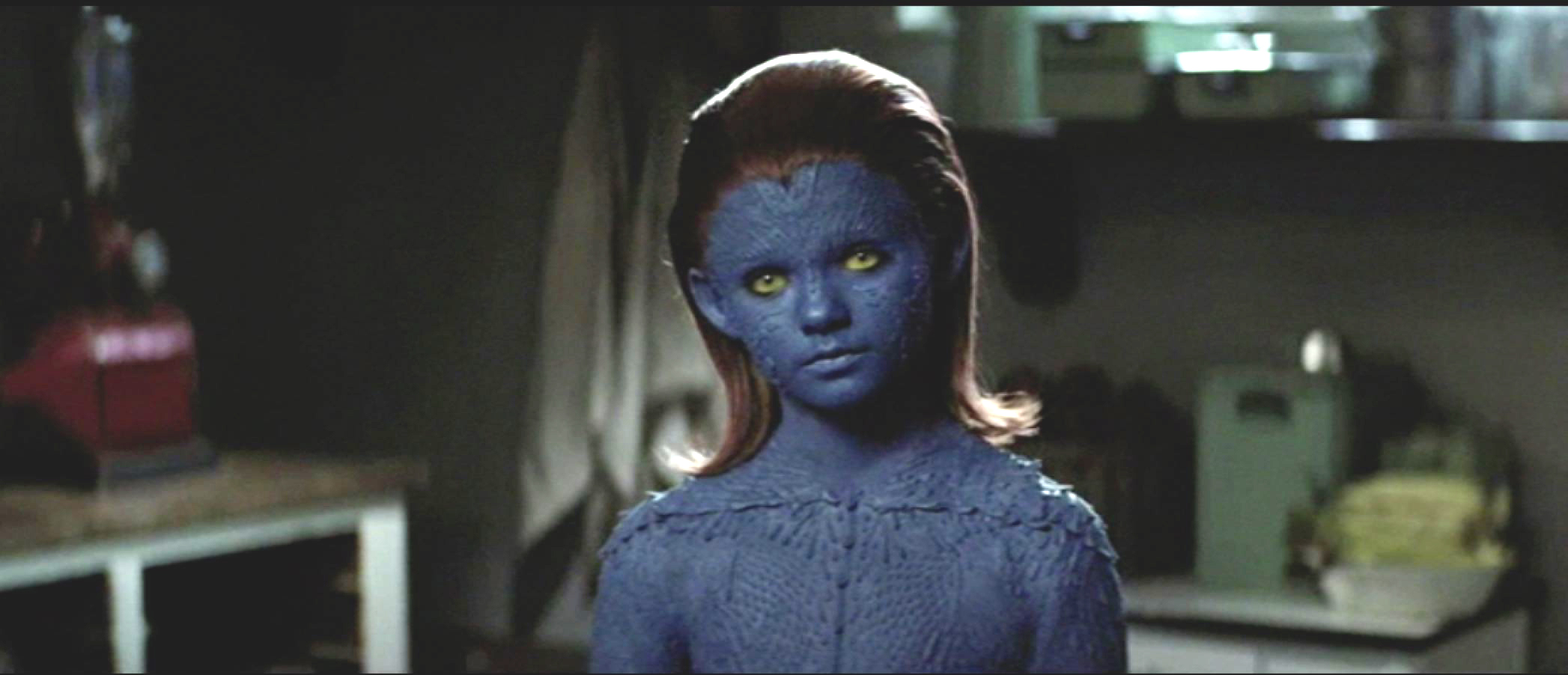X-Men: First Class part 1
X-Men: First Class does something I haven’t seen a superhero movie do before. It’s not just a period piece, that’s unusual enough, but it also places its fantastic characters, Gump-like, in the middle of historical fact. Captain America: The First Avenger, released concurrently, went back in time to place its difficult-to-like protagonist in his proper context, but then wove a fantastical story around him involving ancient Norse artifacts and a guy with no face. First Class not only places its characters in history, it puts them at the center of the darkest, most traumatic events of their time.
That kind of treatment skirts the boundaries of taste, turning, for instance, the Holocaust into comic-book fodder: First Class almost runs into Inglourious Basterds in its treatment of history. No one goes to the movies for a history lesson, but movies have always taught us, from their inception, through their dream-logic, who we are as a people and as a culture. It’s not the job of cinema to tell us how things are but how things feel. You can say that First Class tastelessly warps WWII, but Triumph of the Will did that before anyone even knew what WWII was. The Bryan Singer X-Men movies cloaked their tales of discrimination in colorful metaphor, but First Class demands to be considered “important,” and, to an astonishing degree, it succeeds.
We begin where we began the first X-Men movie, with young Erik Lehnsherr, a Jewish boy, being separated from his parents in a Nazi prison camp somewhere in Europe, some time in WWII. It’s a primal scene, a boy separated from his parents, the sort of scene that forms the spine of a Spielberg movie, given added weight by its being rooted in history. By separating Erik from his parents in a prison camp, by actual Nazis, the movie gives him a historical resonance — he is now representative of a people, and not just a people, but a whole time.
Is that a good idea? Is that the business of movies, to take the central trauma of the 20th century and make it a superhero origin story, stripped of metaphor and presented as stern, cold-eyed drama?
Honestly, I don’t see why not. As I say above, movies have always done this. Birth of a Nation is no more historically valid, and quite a bit less tasteful at this point, than First Class. Many have argued that Schhindler’s List is tasteless too, and still others have argued that no representation of the Holocaust for the purposes of “entertainment” are valid. And yet, the Holocaust was a historical event — it involved real people in real places doing real things, and affected millions upon millions of people. If those events aren’t cannot be dramatized, how do we come to terms with them culturally? I can’t imagine a viewer who comes away from First Class thinking they’ve been an eyewitness to history, because the metaphor of Erik stays in place: he is a literal Jew during the Holocaust, but his suffering, and his destiny, are still tied to metaphor. He’s Superman, with his powers, only without Krypton. Can we absorb that, culturally, for what it is? It seems to me we already have. Moreover, it seems to me like it is a long time coming. In any case, the world accepted First Class without a squeak.
Young Erik, in his agony, bends the metal of the gates separating him from his parents, and he falls unconscious. At that exact moment, it seems, in upstate New York, young Charles Xavier, in his palatial estate, wakes up, awoken by an intruder. Xavier, we see, is the opposite of Erik: he is privileged, wealthy, a defender of his rights instead of a victim, startled awake instead of beaten unconscious. The parallel is made complete by having Xavier find that the intruder is his mother, as though, somehow, Erik’s loss is Xavier’s gain. But here the screenplay throws us a curve: Xavier’s mother is, of course, not his mother, but the young Raven Darkholme — Mystique. How does Xavier know his mother is not his mother? Because, apparently, Xavier’s mother isn’t a very good mother, and Raven’s doing a poor job imitating her. So the screenplay pushes the disparity between Erik and Xavier, then throws us a curve, then pushes through again, giving us two boys and their mothers, one who desperately wants his mother back and one who has his mother around but apparently doesn’t care that much for her.
Xavier doesn’t even blink when Raven reveals herself. Instead, he beams, making the disparity between him and Erik complete. Erik is the disenfranchised victim of brutal discrimination, while Xavier, the coddled youth, rushes to embrace the different.
While I’m on the subject of Mystique, her nudity here pushes the boundaries of taste in a different direction. The facts of life of a superhero — that you’re essentially always walking around naked — is made disturbingly literal with this character, who is naked even when she’s wearing clothes. That’s a winking titillation when the character is a babe in her 20s, but the little girl who presents herself to Xavier is just a naked little girl. And we are reminded that Mystique’s power, any attractive woman’s power, is in the hold they have on our attention. Mystique (as in “the feminine mystique”) is a mutant, a monster really, who presents herself as a sexually-charged beauty, uses her nudity as a provocation and a threat. Her beauty and nudity says “Come and get it” but her blue skin, yellow eyes and lethal disdain keep the viewer at a distance. To see this character as a little girl shows us, for the first time, and unforgettably, that Mystique’s anger and bitterness, her hard shell as it were, stems from being helpless and naked as a girl.



It’s not just a period piece, that’s unusual enough, but it also places its fantastic characters, Gump-like, in the middle of historical fact.
Which is something science fiction and fantasy do all the time, but you’re right that it’s uncommon in the cinematic corner of the genre. It’s basically a concern for worldbuilding that I’m not sure I’ve seen in films before: XMFC says, okay, if we have the “modern day” X-Men movies where mutants are a known thing and have been for a while (but not forever), then there was a point in time where they became known. When and how did that happen? You could answer that question with something that is “just” a period piece, and not connected to historical fact . . . but you’d have to come up with a reason why those early public mutants didn’t get involved in the world around them, and it’s hard to sell that in a convincing and sympathetic manner. (After all, great power, great responsibility, yadda yadda.) Instead, the film gives us the AU divergence point, the moment at which the timeline stopped being real history and started being a different version of itself.
What makes XMFC more audacious is that it’s not just that they are “in historical fact” but at the center of the defining moments of the century. It’s one thing if Forrest Gump “meets Kennedy,” it would be something else if, like in Watchmen, it turned out that Gump was actually the man on the grassy knoll.
In fact, while we’re on the subject of Watchmen, both it and XMFC suggest “what if superheroes are real?” but XMFC slots them neatly into what we already know about history, while Watchmen insists that history must change in order to accommodate the characters.
Hmmmm. Partly I think that’s become Moore was being (as he often is) more stridently political than XMFC aimed to be. But more than that, I think comparing the two isn’t quite apt, because they’re set at different points in their respective AUs. XMFC is about the moment at which mutants begin to change history. Watchmen is about the second generation of “costumed heroes,” after those changes have already been in force for a while. In that respect, Watchmen is more like the Singer X-Men films — though obviously Singer concerned himself only with intra-community politics for the mutants, rather than the larger societal picture.
As for putting your characters at the center of a defining moment in history . . . there’s hubris in it, yes. (I was going to save this comment for later, but probably the most striking thing I took away from the plot was the lovely idea that the Cuban missile crisis wouldn’t have happened were it not for mutant interference. Because nobody could be that crazy! <headdesk>) It’s easier to do, though, if you’re telling a story where you’re allowed to change history. The concentration camp portion is thornier not just because it’s the Holocaust, but because we’re not in a story where mutant powers are allowed to change how that played out. The missile crisis, however, is changed by the efforts of the characters. Speaking from personal experience of dealing closely with historical events while trying to make my characters’ actions simultaneously meaningful and subtle . . . the way XMFC did it is way, way easier. 🙂
Which is what Tarantino did, to spectacular effect, in Inglourious Basterds. The viewer coasts along, thinking “Well, I know how this ends, the plan fails and Hitler goes back to Berlin and goes to his bunker and gets angry about things he sees on the internet,” and then, presto! suddenly that doesn’t happen.
Yup. Which is a total shocker, because I’m not sure we as a society are really prepared for a wish-fulfillment story of that kind — not about the Holocaust.
In some ways I find Basterds morally reprehensible, and in other ways I wish it had been made a lot sooner, so that the people directly affected by Hitler could see it.
Instead, there were a number of 60s comedies that made fun of Hitler, which had their own value, but still — to paraphrase Woody Allen, trenchant satire is one thing, but machine-gunning Hitler in the face gets right to the point.
But don’t we owe the Golden Age of superhero comics and the existence of the superhero genre as a whole in part to Jewish-American wish-fulfillment fantasies against Nazism? Cap punching Hitler in the face on the cover of Captain America #1 is case in point: almost a year before the US entered World War II and a time when most Americans had no wish to be involved in another European war and some high-profile Americans were even expressing sympathies with Nazi Germany, some comic publishers controversially have an unsubtle symbol of America directly attacking the Fuehrer.
The psychology of the largely Jewish-American comic creators in New York during the late 1930s-1940s is explored to great effect in Michael Chabon’s novel The Adventures of Kavalier and Clay. To this end, XMFC is just a logical extension of the cultural framework that Golden Age superhero comics were born in.
But don’t we owe the Golden Age of superhero comics and the existence of the superhero genre as a whole in part to Jewish-American wish-fulfillment fantasies against Nazism?
Yes. Or just the 1930s diaspora in general.
My thesis is that X-Men: First Class should have been reimagined as X-Men Origins: Mystique, with her as the central/viewpoint character.
Oddly enough, I wrote that movie. It didn’t get made.
I personally wasn’t bothered by the use of the Holocaust in Magneto’s origin because I was expecting it from both the previous X-Men films and the comics. To me, it made sense; if you’re going to make atomic about people who are viewed with suspicion and hatred by much of the world because they are different, why not include one of the most horrific real world cases of hatred for the other pushed to its end point? Particularly in the movies, it’s not treated as just a throwaway detail about Magneto. It’s central to his world view, his belief that humans are fundamentally incapable of accepting difference and that mutant kind has no choice but to fight for its survival.
It’s worth noting that XMFC also pays attention to the fact that Magento is Jewish. The Holocaust isn’t just generically an example of prejudice and fear of the Other; it is a specific example, and one that has specific meaning for him.
Right. Erik experiences the level of hatred that humanity is capable of before he even knows that he is something that he will come to think of as other than human. It gives a lot of weight to his belief that humans can’t accept mutants; he’s seen how they treat minor differences within their own species firsthand.